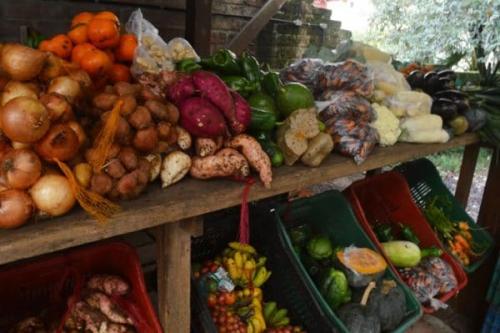Report: The State of Food Security and Nutrition in the World 2020
- Análisis

The report The State of Food Security and Nutrition in the World 2020. Transforming food systems for affordable healthy diets, (FAO, IFAD, UNICEF, WFP and WHO. 2020, Rome, FAO. https://doi.org/10.4060/ca9692en), published in July, concludes that “Five years after the world committed to end hunger, food insecurity and all forms of malnutrition, we are still off track to achieve this objective by 2030. Data tell us that the world is progressing neither towards SDG target 2.1, of ensuring access to safe, nutritious and sufficient food for all people all year round, nor towards target 2.2, of eradicating all forms of malnutrition.” The following are the key messages, as indicated in the report.
Key messages from the report
- Updates for many countries have made it possible to estimate hunger in the world with greater accuracy this year. In particular, newly accessible data enabled the revision of the entire series of annual undernourishment estimates for China back to 2000, resulting in a substantial downward shift of the series of the number of undernourished in the world. Nevertheless, the revision confirms the trend reported in past editions: the number of people affected by hunger globally has been slowly on the rise since 2014.
- Current estimates are that nearly 690 million people are hungry, or 8.9 percent of the world population – up by 10 million people in one year and by nearly 60 million in five years. The number of people affected by severe food insecurity, which is another measure that approximates hunger, shows a similar upward trend. In 2019, close to 750 million – or nearly one in ten people in the world – were exposed to severe levels of food insecurity.
- Considering the total affected by moderate or severe food insecurity, an estimated 2 billion people in the world did not have regular access to safe, nutritious and sufficient food in 2019.
- The world is not on track to achieve Zero Hunger by 2030. If recent trends continue, the number of people affected by hunger would surpass 840 million by 2030.
- A preliminary assessment suggests that the COVID-19 pandemic may add between 83 and 132 million people to the total number of undernourished in the world in 2020 depending on the economic growth scenario.
- Globally, the burden of malnutrition in all its forms remains a challenge. According to current estimates, in 2019, 21.3 percent (144.0 million) of children under 5 years of age were stunted, 6.9 percent (47.0 million) wasted and 5.6 percent (38.3 million) overweight.
- The world is making progress but is not on track to achieve the 2025 and 2030 targets for child stunting and low birthweight, and for exclusive breastfeeding, is on track only for the 2025 target. The prevalence of wasting is notably above the targets. Most regions are not on track to achieve the targets for child overweight. Adult obesity is on the rise in all regions. Urgent action is needed to reverse these upward trends.
- The nutritional status of the most vulnerable population groups is likely to deteriorate further due to the health and socio-economic impacts of COVID-19.
- Food insecurity can worsen diet quality and consequently increase the risk of various forms of malnutrition, potentially leading to undernutrition as well as overweight and obesity.
- Low-income countries rely more on staple foods and less on fruits and vegetables and animal source foods than high-income countries. Only in Asia, and globally in upper-middle-income countries, are there enough fruits and vegetables available for human consumption to be able to meet the FAO/WHO recommendation of consuming a minimum of 400 g/person/day.
Del mismo autor
- Panorama de la seguridad alimentaria y nutrición en América Latina y el Caribe 2020 03/12/2020
- Report: The State of Food Security and Nutrition in the World 2020 04/08/2020
- Cómo evitar que la crisis del COVID-19 se transforme en una crisis alimentaria 16/06/2020
- Seguridad Alimentaria bajo la Pandemia de COVID-19 28/04/2020
- El estado de la seguridad alimentaria y la nutrición en el mundo 2019 17/07/2019
- The State of Food Security and Nutrition in the World 2019 17/07/2019
- Decenio de las Naciones Unidas para la agricultura familiar 2019-2028: Plan de acción mundial 30/05/2019
- Panorama de la pobreza rural en América Latina y el Caribe 2018 21/11/2018
- América Latina y el Caribe es la región con la mayor desigualdad en la distribución de la tierra 06/04/2017
- Panorama de la seguridad alimentaria y nutricional 19/01/2017
Clasificado en
Soberanía Alimentaria
- Gerson Castellano, Pedro Carrano 30/03/2022
- Silvia Ribeiro 29/03/2022
- Germán Gorraiz López 28/03/2022
- Silvia Ribeiro 16/02/2022
- Clara Sánchez Guevara 15/02/2022








